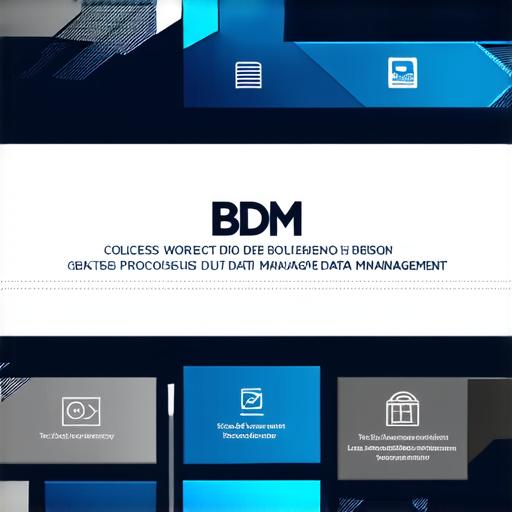As the world becomes increasingly digital, businesses are relying more and more on data to make informed decisions. But managing this vast amount of information can be overwhelming, especially for those who don’t have a strong technical background. This is where Business Data Management (BDM) comes in – a process that helps organizations collect, store, manage and analyze their data effectively.
The Importance of BDM
BDM is a crucial aspect of modern businesses, as it helps organizations make sense of the vast amount of data they collect every day. Without proper management, this data can become unstructured, incomplete or outdated, which can lead to poor decision-making and missed opportunities. With BDM, businesses can ensure that their data is accurate, up-to-date and organized, which can help them make informed decisions that drive growth and success.
The Benefits of BDM
There are many benefits to implementing a BDM strategy in your business. Here are just a few:
-
Improved decision making: With BDM, businesses can access the information they need to make informed decisions quickly and easily. By organizing data into clear, structured formats, businesses can identify patterns and trends that would otherwise be difficult to spot. This can help them make more informed decisions about everything from product development to marketing strategies.
-
Increased efficiency: BDM can also help businesses become more efficient by automating many of the processes involved in data management. For example, BDM systems can automatically clean and organize data, which can save time and reduce the risk of errors. This can free up resources that can be used to focus on other aspects of the business.
-
Enhanced customer experience: By analyzing customer data, businesses can gain a better understanding of their customers’ needs and preferences. This can help them provide more personalized experiences and improve customer satisfaction, which can lead to increased loyalty and repeat business.
-
Competitive advantage: Businesses that use BDM effectively can gain a competitive advantage by making more informed decisions and providing better customer experiences. This can help them stay ahead of the competition and achieve long-term success.
Real-life Examples of BDM in Action
To illustrate the benefits of BDM, let’s look at some real-life examples:
-
Amazon: Amazon is one of the world’s largest online retailers and has been incredibly successful thanks to its use of data. By analyzing customer data, Amazon can make personalized recommendations that drive sales and increase customer loyalty. It also uses data to optimize its logistics and supply chain operations, which helps it deliver products quickly and efficiently.
-
Netflix: Netflix is another company that has been successful thanks to its use of data. By analyzing viewing habits and preferences, Netflix can provide personalized recommendations to each individual user, which has helped it build a loyal customer base. It also uses data to optimize its content production and acquisition strategies, which helps it stay ahead of the competition in the rapidly changing world of streaming services.
-
IBM Watson: IBM Watson is an AI-powered platform that can be used for a variety of data-related tasks, including natural language processing, image recognition and predictive analytics. By using Watson, businesses can analyze vast amounts of unstructured data quickly and accurately, which can help them make more informed decisions. For example, Watson has been used to improve medical diagnosis by analyzing patient data and identifying patterns that may be missed by human doctors.
The Future of BDM
BDM is an ever-evolving field, and as technology continues to advance, we can expect to see even more exciting developments in the coming years. Here are a few trends that we can expect to see:

-
Increased use of AI and machine learning: As AI and machine learning become more sophisticated, we can expect to see these technologies being used more frequently in BDM.
